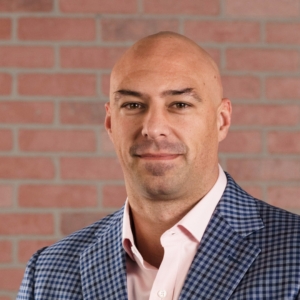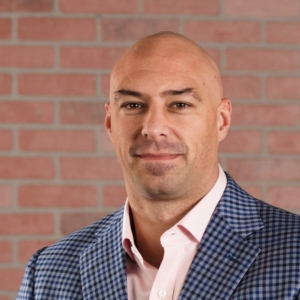Business Friction
Friction is a fact of life. In our industry, friction calls engines to mind. Today, our guest writer Alex Kraft defines and explains friction in business.
I’ve always been interested in how words and terms find their way into common discourse, seemingly out of nowhere. The last few years, the words ‘culture’, ‘friction’, and ‘AI’ (Artificial Intelligence) are constantly mentioned. I’m not smart enough to break out ‘AI’ and culture is a bit played out at this point. I wanted to dig a little deeper on friction, specifically what type of friction exists in the equipment dealer today.
What is ‘friction’ in business? I typed that phrase into my Google machine, and this is what returned: “anything that prevents or dissuades customers from buying your products or services”. I was reminded of a great Bill Belichick quote the other day that made me think of friction in business. Belichick was addressing the team after a key loss to a rival and his message was, “you can’t win until you keep from losing”. The parallel that I see between what Coach Belichick professes and friction is that they are self-inflicted.
In football, teams prevent themselves from winning by turning the ball over, committing penalties, or mental lapses forgetting to cover certain players, dropping passes etc. Equipment dealers prevent themselves from winning in a variety of ways. The first example can be a bad experience with a company’s website. How does your website look on a mobile phone, where 70% of all traffic views web pages? What can a customer do on your website? Can they get pricing? Can they schedule a service or buy parts? If your website just has online forms (do you fill out forms on websites?) or ties to an OEM page that lists machine specifications, is it advancing your brand or generating interest in your company? Another practice that I’m sure keeps dealers from winning is the lack of pricing transparency online. The industry has struggled with this for eternity. I started as an equipment salesperson in 2004. I’ve competed against all the major brands. I’ve had customers show me hard copy quotes from all my competitors. Yet, when I look online at dealer’s websites and their online listings on sites like Machinery Trader, the pricing displayed is not true market pricing (I’m being polite here). What is the purpose of showing pricing online if it isn’t actionable? If customers stumble onto your site, how many are turned off and don’t inquire?
The last example that I’ll explore concerning friction in equipment sales is the prospecting/quoting process. Dealers have outside sales teams that are taught to cold call jobsites and customer offices. Talk about friction. If a customer needs pricing or information, they must call a salesperson. What if I don’t know who my [insert brand] salesperson is? Friction. Most dealers don’t list their salespeople on their website with contact information. Friction. If I’m a customer and I want to compare quotes, now I call multiple salespeople? Friction. What if there’s been a change in sales reps? Friction. If I miraculously get someone on the phone, do they have the answer right there for me? Most likely, no. They must call me back. Friction. Ok, it’s been a few days, but I have my price. Is it your best price? No, it’s negotiation time. Friction. Best case, everything has gone well, you’ve breezed past all these hurdles, now it’s time for that sales contract and finance application process. I’m sure all your documentation is electronic? Friction.
The basis of friction in parts and service is the effort required for customers to get anything done. Online parts ordering is still in its infancy and many dealers/OEMs don’t even have it yet today. This leads to customers calling a landline, hoping to get someone to speak with to order the correct parts. Reporting a service issue is similar- call a landline and hope to get someone on the phone (how often do you get right through?). Maybe some customers text your local dispatcher. What happens when that person is out sick, on vacation, at lunch, or leaves? If you believe I’m exaggerating, call the phone numbers listed on your website to put yourself in your customers shoes. I’d wager that you won’t be pleased with the findings. After the initial conversation, what is your communication like with the customer regarding status of technicians and estimates for the repair? Many dealers still don’t provide estimates before working on the machine. Invoicing the customer for work performed when they have zero expectation for what the repair cost is a perfect recipe for customer dissatisfaction. Not to mention how long it typically takes to invoice the customer. All these facets add up and can make customers ask themselves, ‘do I want to do business with this dealer again?’
Circling back to Coach Belichick’s quote, what I’ve described here is all within a dealer’s control. Nothing mentioned above has anything to do with your competition. I’m afraid that for years equipment dealers run through these processes and think to themselves, ‘well, but our competition is the same and we aren’t any worse’. If that’s the case, imagine what kind of employees you can recruit with that slogan and what your sales pitch is to customers! I encourage leaders to look within your departments and using another Belichick term, self-scout. The tendency has always been, look at our top 10 customers and see what their experience is like. This is a flawed approach because their experience is not the reality for the other 98% of your customer base. The goal should be figuring out how to offer those 98% the same level of A+ service the top accounts enjoy. We are in a different time today and there are many tools available that can help dealers solve legacy issues. If you take all the possible reasons for customers to say ‘No’ off the table, you may just end up with a growing piece of your competition’s market share. Ask yourself, when was the last time the New England Patriots gave a game away?
Did you enjoy this blog? Read more great blog posts here.
For our course lists, please click here.


